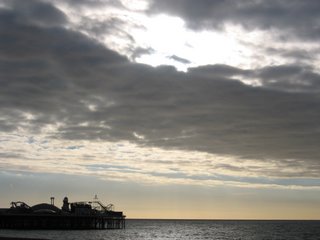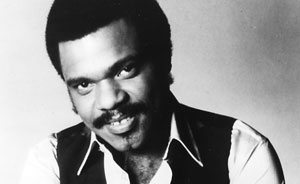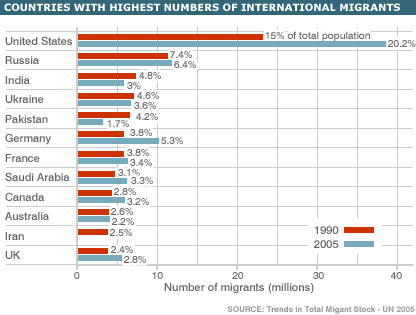I've always gone through different phases with books. Sometimes, I'll read voraciously and whizz through anything I can get my mitts on. Other times, I'll have utterly barren eras where a book barely passes through my hands, but for once in a couple of years (exaggerations hopefully excused for the sake of literary licence). In recent times - since I moved to Tokyo - I've gone through one of those lean periods, as I've mostly been far too busy in trying to lay the groundwork for the new life I started making for myself. Probably less than 10 novels in 3 years.
Over Christmas 2005, I stepped off the Tokyo wheel for a while and forced myself to relax, exchanging the East Asian archipelago of Japan for East Africa and Tanzania. Believe me, stopping can be a tough thing to do in this town. Whilst slowing down a while, I had the pleasure of immersing myself in the joys of Zadie Smith's debut novel, the intricately interwoven tale of multi-ethnic London that is 'White Teeth'. Not only was it good to step into the well crafted pages of somebody else's imagination for a moment, it was also a bloody good read.
Just completed reading my second novel in 6 months. Not exactly a cracking pace, it has to be said, but a pleasure to have done so all the same. Depicted above, I've just made it through my first take on an Ian McEwan novel, with 'Saturday'. I've never spent a great deal of time ploughing through the contemporary 'old British vanguard', yet was pleasantly surprised and a little proud of this gem. McEwan could very easily be considered as operating at the peak of his game. Richly descriptive, it tells the tale of one man's life over the course of a single day, again in London - the city of a million different stories.
All the more pertinent for me, the trials of the day of Henry Perowne were backdropped by the anti-war march held on February 15th 2003 - an event where anywhere up to 2 million people may well have taken to the streets of London to express their opposition to the then pending US-led (and British-followed) war in Iraq. A textbook case in military misadventure, if ever there was one. I joined this march, apparently the biggest public protest in British history, having felt a calling I couldn't ignore. I went along too with a MiniDisc player and a clip-mic, and recorded the sounds of the street, later working extracts from these recordings into some of the songs that appeared on my first album as Control K.
Having made my own attempts at representing this surge of popular feeling in art, it was a pleasure to discover somebody else having done so too, and at a considerably higher level than my efforts. While the world may currently lack the first 'great post 9/11 novel', McEwan's efforts at depicting the realities of the changed modern world that the Bushites forcibly dragged the rest of the planet into make for both a good read and a valuable document of these times. It's not entirely without traces of optimism too, though they are certainly subtle and read 'between the lines'.
When our grandchildren look back at the turn of the 21st Century, as we only recently did for the turn of the 20th, pointers such as this may well give them a good flavour of this era.
The question remains to be seen, however, whether they will be cursing us or praising us.
Over Christmas 2005, I stepped off the Tokyo wheel for a while and forced myself to relax, exchanging the East Asian archipelago of Japan for East Africa and Tanzania. Believe me, stopping can be a tough thing to do in this town. Whilst slowing down a while, I had the pleasure of immersing myself in the joys of Zadie Smith's debut novel, the intricately interwoven tale of multi-ethnic London that is 'White Teeth'. Not only was it good to step into the well crafted pages of somebody else's imagination for a moment, it was also a bloody good read.
Just completed reading my second novel in 6 months. Not exactly a cracking pace, it has to be said, but a pleasure to have done so all the same. Depicted above, I've just made it through my first take on an Ian McEwan novel, with 'Saturday'. I've never spent a great deal of time ploughing through the contemporary 'old British vanguard', yet was pleasantly surprised and a little proud of this gem. McEwan could very easily be considered as operating at the peak of his game. Richly descriptive, it tells the tale of one man's life over the course of a single day, again in London - the city of a million different stories.
All the more pertinent for me, the trials of the day of Henry Perowne were backdropped by the anti-war march held on February 15th 2003 - an event where anywhere up to 2 million people may well have taken to the streets of London to express their opposition to the then pending US-led (and British-followed) war in Iraq. A textbook case in military misadventure, if ever there was one. I joined this march, apparently the biggest public protest in British history, having felt a calling I couldn't ignore. I went along too with a MiniDisc player and a clip-mic, and recorded the sounds of the street, later working extracts from these recordings into some of the songs that appeared on my first album as Control K.
Having made my own attempts at representing this surge of popular feeling in art, it was a pleasure to discover somebody else having done so too, and at a considerably higher level than my efforts. While the world may currently lack the first 'great post 9/11 novel', McEwan's efforts at depicting the realities of the changed modern world that the Bushites forcibly dragged the rest of the planet into make for both a good read and a valuable document of these times. It's not entirely without traces of optimism too, though they are certainly subtle and read 'between the lines'.
When our grandchildren look back at the turn of the 21st Century, as we only recently did for the turn of the 20th, pointers such as this may well give them a good flavour of this era.
The question remains to be seen, however, whether they will be cursing us or praising us.




